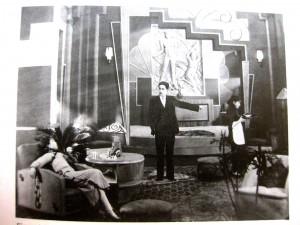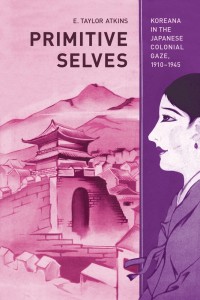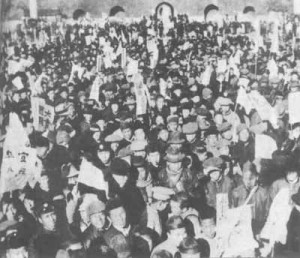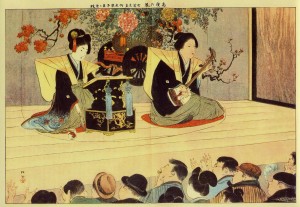the Art and Politics of East Asia workshop
presents
Baek Moon-Im
Associate Professor
Dept. of Korean Language & Literature
Yonsei University, Seoul, South Korea
“Film as Art” as a Strategy :
Im Hwa’s Discourse on Chosŏn Cinema in the early 1940s
Friday, May 27th
3:00-5:00pm
Judd 313
5835 S. Kimbark Ave. Chicago, IL 60637
(No paper will be circulated for this workshop meeting)
Abstract:
In four articles written during the 1940s, Im Hwa, the most influential Korean literary critic during the colonial period, presented a discourse on Chosŏn film as an effort to interfere in the “transitional time,” a period in which film control was fortified while the war progressed. Im Hwa’s declaration of the concept, “(Chosŏn) film as art,” was a strategic one utilized to criticize and prevent Chosŏn cinema’s colonization, commodification and propagandization. The meaning of the concept was, first, ‘art as universality’ by which Chosŏn cinema could acquire a proper and equal membership when being posited in the context of empire. The second meaning of it was Im Hwa’s “special attitude for art” that was used to investigate Chosŏn cinema’s own “idiosyncracy” from its birth to check the heightened expectation among Korean filmmakers that the Government-General in Korea would provide them with material foundations such as capital and film facilities. The third meaning of the notion was artistic norm as “character,” underlining the question of the individual that cannot be subsumed to the group and stressing the quality of documentary and the structure of classical drama as the indigenous values of cinema while Fascist aesthetics rose as a standard of ‘People’s film [Kungmin yŏnghwa; kokumin eiga 國民映畵] .’ These tactics of Im Hwa were to ultimately address Chosŏn filmmakers while bearing the empire and colonial government’s attention in mind, under the intensified film control in the Greater East Asian Co-Prosperity Sphere era.
This workshop is sponsored by the Center for East Asian Studies and the Council on Advanced Studies in the Humanities. Persons who believe they may need assistance to participate fully, please contact the coordinator in advance at: maxb@uchicago.edu
~~~~~~~~~~~~~~~~~~~~~
Prof. Baek’s presentation coincides with this week’s event:
Bordercrossings in East Asian Film:
Koreans on the Move

Two Evenings with Directors Zhang Lu and Yang Yong-hi
Friday, May 27, 2011 – 7:00pm – Saturday, May 28, 2011 – 5:00pm
University of Chicago Film Studies Center
5811 South Ellis Ave, Cobb Hall 306, Chicago, Illinois 60637
Border Crossings in East Asian Cinema brings to campus films that cross generic and geographic borders in East Asia. This year’s theme, “Koreans on the Move,” calls attention to recent works about the experiences of migrants and refugees from and to North Korea.
Dooman River, a feature film by ZHANG Lu, and Sona, the Other Myself (Goodbye, Pyongyang), a documentary by YANG Yong-hi, explore questions of ethnic identification and solidarity, probing into the tragic ways in which national boundaries affect people’s lives and reminding us of the vital yet fragile efforts of those who seek to maintain human connections across national borders.
Screenings will be followed by conversations with the directors and a roundtable discussion with University of Chicago faculty and graduate students.
For More Information Check Here
Co-sponsored by CEAS Committee on Korean Studies, CEAS Committee on Chinese Studies, CEAS Committee on Japanese Studies, and Confucius Institute at the University of Chicago.








